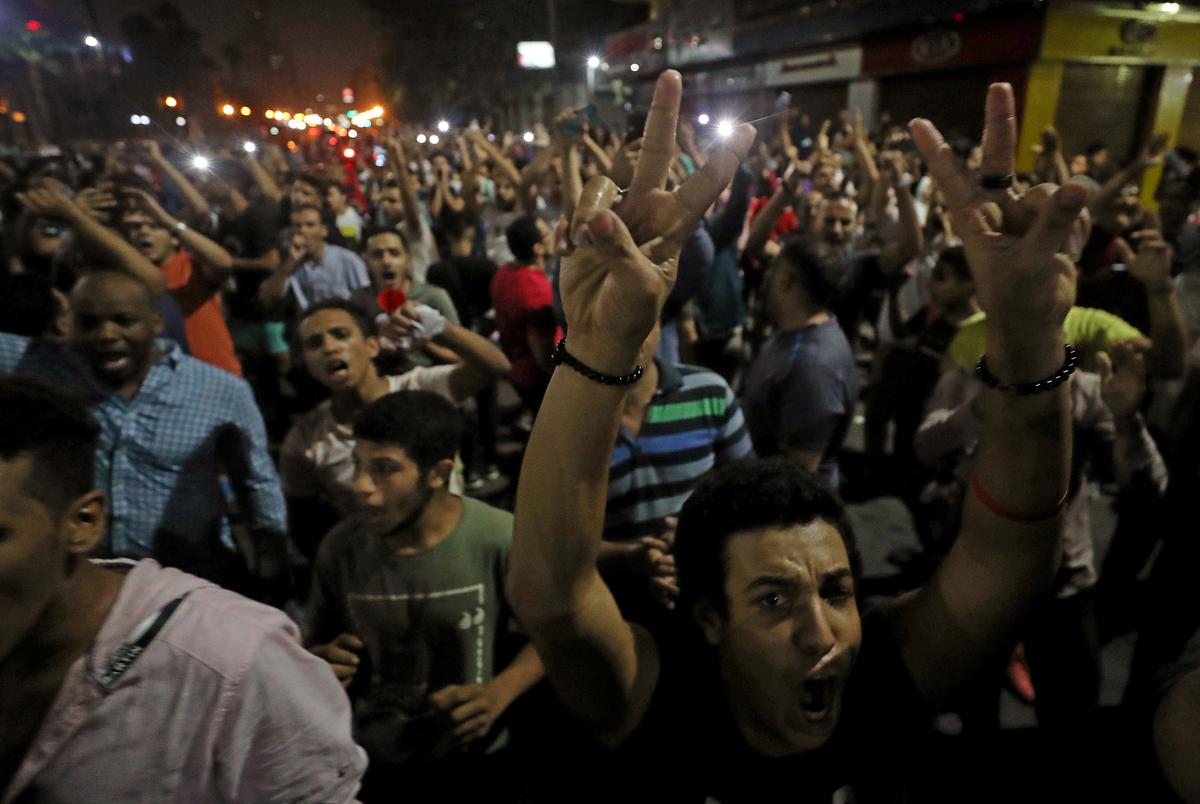
Egypt’s forces arrests hundreds following protests
Human rights groups say Egypt’s security forces have arrested close to 1,400 people in recent days in one of the largest crackdowns on political opponents in years.

Among those arrested in the clampdown this week are protesters from around the country, leading opposition figures and academics, as well as a number of people who had no apparent connection to the protests.
Amid calls for more demonstrations on Friday, the government has deployed security forces in central Cairo in the vicinity of Tahrir Square.
The scattered protests in Egypt began last week and highlight the risk that President Abdel Fattah al-Sisi could face broader dissent, driven by grievances over economic austerity and allegations of official corruption.
Sisi, in New York for the U.N. General Assembly, indirectly accused the outlawed Muslim Brotherhood of stirring up the protests, saying “political Islam” was to blame.
Analysts say it won’t be easy to curb dissent without addressing its economic and political causes. Many Egyptians distrust government promises after three years of austerity agreed with the International Monetary Fund in exchange for a $12 billion loan.
Since then, Egypt has introduced valued-added tax, devalued the currency and raised the prices of electricity and fuel.
The austerity measures, which were accompanied by a crackdown on dissent, heaped pressure on many. The number of Egyptians living below the poverty line rose to 32.5% in the 2017/18 financial year from 27.8% two years earlier.
Despite the economic concerns, Sisi remains popular among many ordinary people for stabilizing Egypt after the fall of Hosni Mubarak in 2011 led to turmoil that scared away tourists and foreign investors, and brought the public finances close to collapse.
Political analysts also say the protesters lack leaders, political affiliations and coordination, analysts said. The crowds were spontaneous, making the protests difficult to control.
“It’s not clear whether protests will escalate or fizzle right now,” said Michele Dunne, director of the Middle East Program at the Carnegie Endowment for International Peace. “But if not this week, protests are likely to return in the coming weeks and months.”






